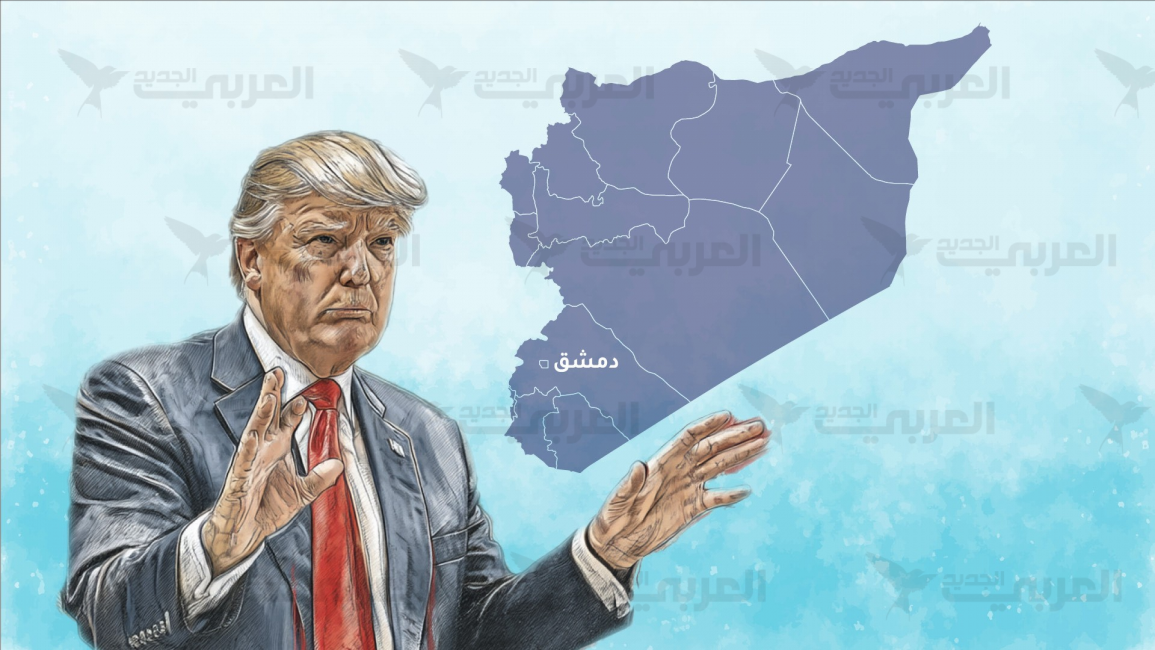For understandable and justified reasons, the policies of President Trump’s administration towards the new authority in Damascus are of considerable interest to Syrians of all affiliations and perspectives. Despite its relatively limited engagement in Syrian affairs, the United States remains the most influential international actor in the country—economically, militarily, and politically.
Economically, US sanctions are the principal barrier to recovery and reconstruction. Militarily, the American presence east of the Euphrates stands in the way of national reunification and the reclamation of vital oil, gas, and wheat-producing territories. Politically, many countries base their own stance on Damascus in part on Washington’s position. Consequently, a great deal depends on understanding the Trump administration’s approach to Syria.
Syria does not feature as a standalone issue on the Trump administration’s foreign policy agenda. Rather, it is framed in the context of broader regional concerns: the weakening of Iran, Israeli-Turkish rivalry, and relations with Russia. Since returning to office, President Trump has mentioned Syria only once or twice—most notably during his meeting with Israeli Prime Minister Benjamin Netanyahu last week. In that context, he revealed that he had told Turkish President Recep Tayyip Erdoğan: “I know you’re the one who took Syria.”
In the absence of a clearly defined Syria policy, two competing currents have emerged within the administration, united only in their satisfaction over the fall of the Assad regime. The first, represented by the State Department, advocates preventing Syria’s descent into renewed chaos and is inclined to give the new leadership in Damascus an opportunity to demonstrate a break with the past. This perspective informed the US conditions presented at the Brussels donor conference on 18 March, as a prerequisite for easing sanctions.
Strategic shift
The second current emanates from the White House itself, particularly figures such as Sebastian Gorka, National Security Council adviser on terrorism, and Tulsi Gabbard, Director of National Intelligence. This faction has adopted a hardline stance. It recently led efforts to reduce the number of residential permits for Syria’s UN delegation, arguing that it now represents a government unrecognised by the United States.
With the expulsion of Iran from Syrian territory—a longstanding US objective since the Obama administration—it is likely that Trump’s interest in Syria will diminish even further. Indications suggest Washington may be preparing to withdraw its forces from eastern Syria and hand over management of the file, including counter-ISIS operations and southern border control, to Turkey. Should this scenario materialise, Syria will find itself caught between enduring US sanctions on one side, and an increasingly US-mediated arena of Turkish-Israeli competition on the other.
The potential implications are serious, requiring a strategic shift by the new administration in Damascus. Most importantly, it must abandon the illusion that Syria’s future lies in the hands of Washington. Pursuing American approval may entail indefinite delays. Instead, Syria must act as though its fate does not depend on external developments. This means activating the state’s institutions in a depoliticised manner—functioning independently of sanctions—and rejecting the narrative that Syria is a blank slate without institutions or structures. That view is inaccurate, self-defeating, and undermines the legacy of previous generations.
The Syrian state has existed for over a century. Its continuity is evidenced in every peaceful handover of government, an institutional practice that reflects deeper administrative resilience. What is needed now is the reinvigoration of those institutions through the recall of sidelined expertise and the unleashing of talent suppressed by the previous regime’s reliance on loyalty over competence. This will require a reassessment of the political approach, embracing transparency, participation, and the development of a nationally agreed-upon vision for political transition.
If Syria can begin to reform from within—guided by internal needs and national will—the lifting of American sanctions will follow naturally, and reintegration into the international community will occur without the perception of submission to external dictates. In this spirit, the path forward lies in rebuilding Syria from within, through a shared national commitment to restoring the state we all aspire to see.
This article was translated and edited by The Syrian Observer. The Syrian Observer has not verified the content of this story. Responsibility for the information and views set out in this article lies entirely with the author.


